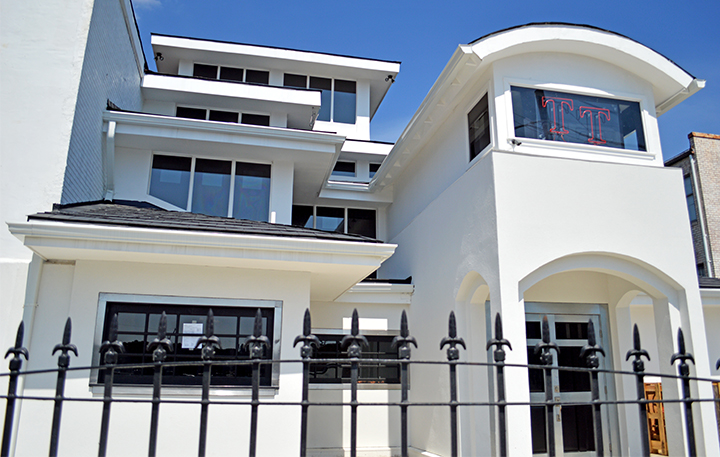
Terrapin’s Turf
When students pack up their belongings to return home during winter term, the campus and surrounding area tend to snuggle up under a blanket of snow, ready to hibernate for several weeks.
With the campus nearly empty, bars and restaurants usually staffed by and catering to students had to brace themselves for a slower season.
Some, such as Yogiberry, closed their doors until classes started again.
“It makes more financial sense for them to do so,” Michael Stiefvater, the economic development coordinator for College Park, wrote in an email.
Others, such as Terrapin’s Turf, changed their hours for the same reason.
“College students are a critical part of our business,” said Terrapin’s Turf co-owner Yasmine Afshar. “We made the best of the situation; we kind of braced ourselves.”
Afshar, along with her sister and business partner, Salomeh, decided to change Terrapin’s Turf’s hours during the break to accommodate a different crowd. Instead of catering to students, who go out throughout the week, the owners focused on year-round College Park residents. The restaurant and bar held events for local artists and company gatherings on the weekends, using the downtime as an opportunity to reach out to the community, Afshar said.
“All in all, it wasn’t as tragic as we thought it would be,” she said. “It was a lesson learned. Now we know how to utilize the upcoming slower seasons.”
Students who remained on the campus during the break noticed that typically popular businesses, such as Terrapin’s Turf and Bagel Place, were not as busy as they are during the academic year.
“On the nights I went out, there were lines at Bentley’s and Cornerstone, but I barely saw people at Turf,” said Tish Bruce, a senior English major. “Usually you can hear the music pumping from Turf, but it was quiet and the bouncer was standing there by himself.”
Afshar said the ownership marketed differently during the break to appeal to different crowds. During the fall semester, students looked to party, promoting a louder environment. Over the winter, the atmosphere was tamer and those who held events at the venue desired a calmer crowd.
“It’s definitely an opportunity for local businesses to reach another audience if they choose to do so,” Stiefvater wrote. “By nature, some places are geared towards students and do rely heavily on that traffic in the spring and fall to get by during other times.”
In the future, however, Stiefvater said he believes the city will attract more nonstudents.
“We have several development projects that are going to begin construction this year that will bring housing units not geared toward students,” he said.



